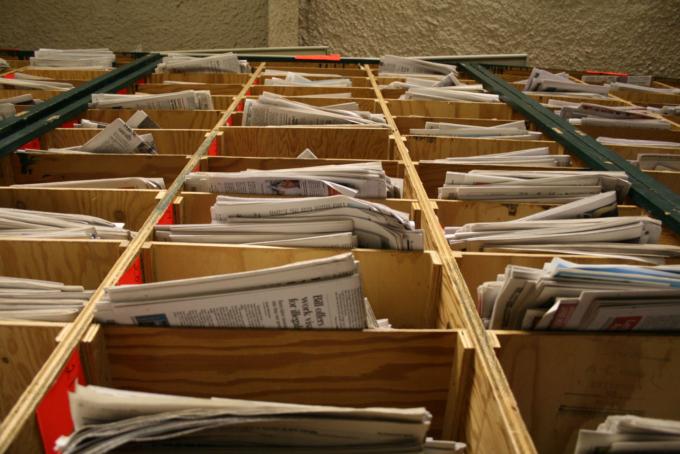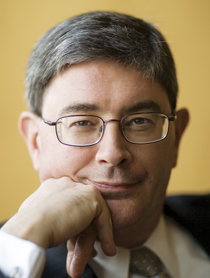
Culture
I’ve written for adults. My conviction in 1978, when I was getting started, was that the people for who are the column’s primary audience are the best-educated Catholics in history (if not necessarily the best-catechized Catholics in history).

Weigel
I've been writing op-ed columns for the Catholic press since 1979. In its present form, "The Catholic Difference," I began this column in 1993 at the invitation of the late Kay Lagreid, then-editor of the now-deceased Catholic Northwest Progress in Seattle; the column went into national syndication shortly thereafter, with the Denver Catholic Register eventually succeeding the Progress as syndicator. This is the 1,000th column in that series, which prompts some thoughts of a confessional nature.
A thousand columns in this format comes to something over 700,000 words. In all that columnizing, I've tried to remain true to several principles I adopted at the outset of my writing for the Catholic press.
I take seriously the truth of faith that "Catholic" means "universal," so my columns have touched on a lot of things that defy the stereotype of a "Catholic press column." Thus in addition to obvious Church topics and the occasional excursion into theology, I've felt free to range over politics, sports, science, literature, pop culture, high culture, history, the visual and plastic arts -- whatever seemed interesting at the moment, so long as it could be illuminated in one way or another by the light of Catholicism. (A puzzled editor once asked me why I had written a column about the great thoroughbred Secretariat; as a sports fan, he liked the column, but he didn't run it because he didn't see how it fit in a Catholic paper. My reply was that anything or anyone -- or any horse -- that displayed the beauty of creation, and that embodied the excellence that Peter Berger would call a "rumor of angels," ought to have some place in the Catholic press, even if the theological point wasn't hammered home with a sledge.)
I've written for adults. My conviction in 1978, when I was getting started, was that the people for who are the column's primary audience are the best-educated Catholics in history (if not necessarily the best-catechized Catholics in history). And it seemed to me then, as it seems to me now, that they ought to be treated as intelligent adults who can follow an argument and wrestle with it. Too much of the Catholic press, I fear, thinks low when it imagines its readership. I determined at the outset to think high, and to write columns for the Catholic press that were crafted at the same level of argument and language as the columns I've written for papers like the Wall Street Journal and the Los Angeles Times.
I also decided, way back when, that my columns would not avoid controversy (which is, in any event, unavoidable). I don't deliberately seek controversy, a bad habit in some corners of the Catholic blogosphere. But because I believe that the entire Church, including the hierarchy, benefits from honest challenge and critique, I have not avoided what might be deemed "controversial" when I thought it important: during political campaigns, when grave moral issues were at stake; during the Long Lent of 2002; in the aftermath of 9/11 and the run-up to the Iraq War; in response to challenges to religious freedom in America that couldn't have been imagined in 1978, when "work for religious freedom" meant "work for prisoners of conscience behind the iron curtain." The bishop-publishers who have grasped the importance of an open airing of challenging, if controversial, opinion in their diocesan papers have my admiration and my thanks.
Yet one more conviction links the 1.000 columns, and in fact dates back to the earlier series of Catholic press columns I wrote from 1979 until 1986: the conviction that the Catholic Church in the United States, for all its difficulties, is more likely to be the "Church in the modern world" envisioned by the Second Vatican Council than any other local Church. To be sure, my understanding of what that might mean has evolved over time; I'd be a dolt if it hadn't. But the conviction was there in the beginning, and it remains in force today.
George Weigel is Distinguished Senior Fellow of the Ethics and Public Policy Center in Washington, D.C. Weigel's column is distributed by the Denver Catholic Register, the official newspaper of the Archdiocese of Denver. Phone: 303-715-3215.
- George Weigel is Distinguished Senior Fellow of the Ethics and Public Policy Center in Washington, D.C.
Recent articles in the Culture & Events section
-
'Dignitas' and the mediaRussell Shaw
-
Scripture Reflection for April 14, 2024, Third Sunday of EasterDeacon Greg Kandra
-
St. Helena's House is established in the South EndThomas Lester
-
Is this synodality?Russell Shaw
-
Poking the hornet's nest of IVFFather Tadeusz Pacholczyk


















